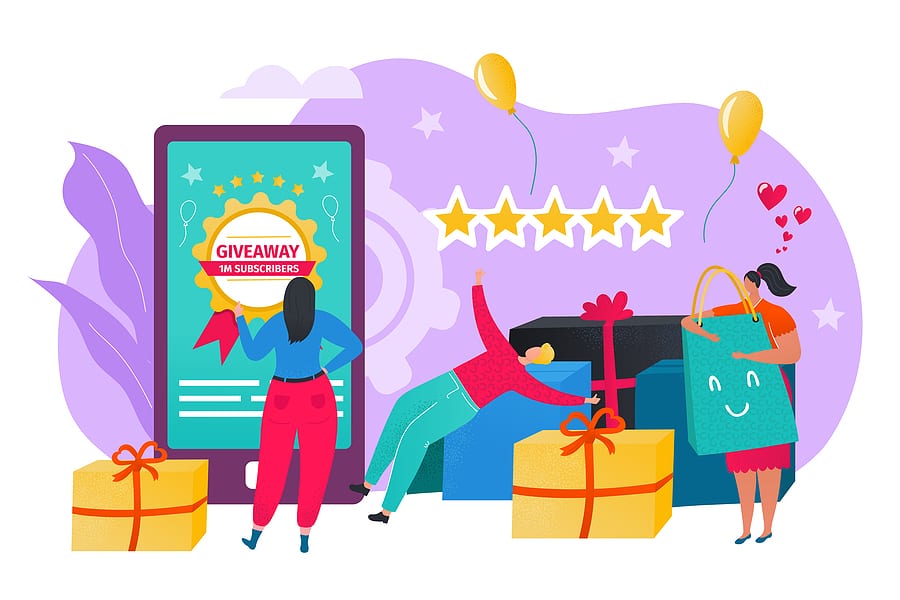Ecommerce Personalization Statistics: Here’s Why Consumers Love It

For brands like Amazon, however, the bar has already been set so high on ecommerce that a new approach is required to compete. As brands realize that one-size-fits-all solutions can no longer meet evolving customer needs, hyper-personalization is becoming the norm.
According to Forrester, “companies that fail to provide comprehensive omnichannel communications to their customers will lose market share to competitors who do.” Personalized shopping enables brands to maximize sales potential and maximize capabilities. Unfortunately, brands can suffer when such a strategy is not implemented.
What is Ecommerce Personalization?
An online store’s “ecommerce personalization” pertains to how it displays dynamic content based on customer information, such as demographic information, intent, preferences, browsing histories, past purchases, and device usage. For example, whether you choose to shop on your mobile device, tablet, or smartwatch, an online store with these features will personalize your experience and tailor it to your habits for the best end user experience possible.
Through its targeting, personalization and optimization capabilities, Magnolia CMS, for instance, supports these practices. Customer segments can be defined, personalization of content can be based on implicit and explicit data (including third-party data, such as weather information), a test of your personalized content can be run, and complete individualization of the customer experience can be based on journey tracking.
Importance of Personalization in Ecommerce
By personalizing your offers, you ensure that they are relevant to your customers. Personalization is a topic consumers have repeatedly expressed their preference for, with Epsilon data showing that 80% of customers are more likely to buy from brands when they provide them with a personalized experience.
Furthermore, the reverse is also true. It is expected that those customers will choose a competitor that offers a tailored experience better than the brand that fails to deliver personalized experiences.
Do Customers Want Personalization in Ecommerce?
Content and products that enhance their shopping experience should be relevant, actionable, and exciting for each segment. By doing so, your brand will make shopping faster, easier, and more enjoyable. Creating a long-term, healthy customer-business relationship begins with personalization. We can illustrate the power of personalization by looking at a few statistics.
When customers don’t receive personalized experiences, they get frustrated
➡️ Almost seven out of ten consumers are dissatisfied with impersonal shopping experiences.
➡️ Content that isn’t personalized stops 63% of consumers from making a purchase.
Data sharing is welcome by customers.
➡️ Almost half of the consumers said they would share personal information to get personalized discounts on products they like.
➡️ In order to create a more personalized experience, 83% of consumers say they would be willing to share their data.
➡️ Approximately 80% of consumers agree that businesses should collect their purchase history and preferences so that they can offer personalized experiences.
Personalization is becoming more popular among businesses
➡️ 98% of marketers agree that it improves relationships with customers.
➡️ According to a recent survey, 89% of digital companies are investing in personalization.
➡️ Personalization is a top priority for 51% of marketers.
Businesses benefit from personalization.
➡️ A brand that offers personalized experiences is more likely to generate a purchase from 80% of consumers.
➡️ A product’s revenue increases by 38% when customers receive personalized ads relevant to their browsing habits.
➡️ 85% of shoppers online purchased products because of personalized shopping cart recommendations.
Messenger AI provides personalized conversations for customers
➡️ Chatbots are preferred by 69% of consumers because they offer quick responses to simple questions.
➡️ Six out of ten marketers believe Messenger AI can offer more personalized services to website visitors.
➡️ In Messenger AI, Facebook reaches 80%+ open rates and 30%+ click-through rates, providing customers with a personalized, one-on-one experience.
If mobile engagement is personalized, customers are happy
➡️ 41% of consumers don’t mind businesses sending them personalized SMS offers based on their purchase history.
➡️ Consumers actually believe that 51% of brands they love are interested in texting them.
➡️ 76% of loyalty members prefer receiving updates via SMS from the brands they follow.
Engagement and revenue are directly impacted by personalized email marketing
➡️ Email personalization drives six times more conversions.
➡️ By personalizing emails, 82% of marketers have seen their open rates go up.
➡️ By personalizing emails, 122% of marketers have seen their ROI rise.
Personalizing website experiences leads to higher conversion rates
➡️ More than 60% of people want to see offers and promotions personalized as they browse your website.
➡️ The number of signups can be increased by 333% when pop-ups are targeted.
➡️ A customer survey found that 59% of respondents consider personalization very important for winning their business.
When social media ads are personalized, they generate more revenue
➡️ According to 2019 data, 72% of consumers engaged only with customized marketing messages.
➡️ 63% of consumers don’t like when brands repeatedly blast generic advertising. They prefer personalized ads.
➡️ 88% of marketers in the United States say personalization has led to measurable improvements, and more than half report increases above 10%.
Benefits of ecommerce personalization
In order to offer a personalized shopping experience throughout the buying cycle, some work must be put in. To create an experience that wows people from the first touchpoint and through what will hopefully become a lasting relationship requires thoughtfulness and the proper technical tooling.
➡️ Personalization increases sales by 20% on average, according to marketers
➡️ 77% of shoppers want a personalized experience, have chosen it, or are willing to pay more for it
➡️ Shoppers who receive a customized experience are more likely to make a purchase
With so many marketing messages flooding us, we need something special to notice an advert or product. Those that feel relevant and straight-to-the-point will entice us to click and possibly buy.
Increase in Average Order Value (AOV)
When specific related information is provided to your customers, there’s a greater chance that they’ll indulge in shopping and buy more during their visit, and it’s a great way to increase average order value (AOV).
Think about this: A customer looking to buy a laptop will easily be able to engage you for accessories like a bag, a mouse, a cooling pad, etc. You will be able to sell more products in a transaction if you can recommend a few products at the point of nearly completing the sale, you can easily increase average order value on most transactions.
Improves Customer Loyalty
Customers feel appreciated when you provide them with a personalized user experience by demonstrating that you listen to them and make an effort to make their lives easier. The study by Forrester Consulting and Exact Target found that 84% of marketers believe that personalization has a positive impact on customer loyalty.
The loyalty of a customer can easily lead to more business. In fact, loyal customers are the biggest influencers in most businesses, not only purchasing their products but also recommending them to others. An increase in profits of 25 percent to 80 percent can be achieved by reducing attrition by just 5 percent. A healthy online business environment can be created by all of these factors.
Website Engagement Increased
It has already been demonstrated how frustrating it can be to experience a disjointed connection with a website. Your customer will be more likely to spend more time on your website if they can relate to it better and will also be more likely to return.
According to a recent study, almost 60% of customers prefer that an online store remembers their contact information and the items they’ve purchased. Engaging your customers in this manner improves your bottom line and also saves your company money on marketing that would otherwise be spent on ads to engage customers.
Need More Tips?
We’ve got you covered. Check out our related guide: The Ultimate Guide to Beating Cart Abandonment
What You Should Do Now
Here are 3 ways ReadyReturns can help you deliver amazing return experiences that eliminate prepaid labels and boxes, delight customers, and protect your margins:
Schedule a Demo – See how ReadyReturns turns product returns into your competitive advantage with “Amazon-like” returns and cost-saving features.
Start Your Free Trial of ReadyReturns (No CC Required) – Set up in minutes. Instantly offer QR code returns, product exchanges, and custom return rules that turn frustrated customers into repeat buyers.
Try ReadyCloud at No Cost – Why manage shipping and returns separately? Get ReadyShipper X, ReadyReturns, and more in one unified platform for seamless fulfillment and order management.
Share On:









